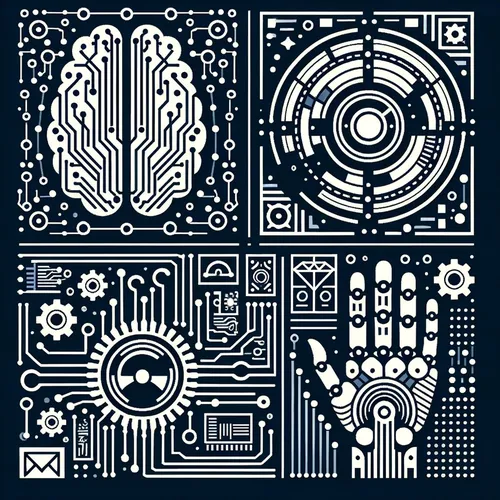Robots Steal Jobs, but AI Finds New Ones! Quantum Leaps, Blockchain Creeps, and IoT Sweeps in 2025 Tech Frenzy
- Author
- Quiet. Please
- Published
- Mon 14 Jul 2025
- Episode Link
- https://www.spreaker.com/episode/robots-steal-jobs-but-ai-finds-new-ones-quantum-leaps-blockchain-creeps-and-iot-sweeps-in-2025-tech-frenzy--66971301
This is you Emerging Technology Trends: AI, Robotics & Digital Innovation podcast.
Artificial intelligence, robotics, quantum computing, blockchain, and the Internet of Things are accelerating a wave of cross-industry transformation that is reshaping the global economy headed into July 2025. The robotics industry is experiencing historic growth, with global market value set to double from about 71 billion dollars in 2025 to over 150 billion by 2030, according to a recent Nasdaq market analysis. This expansion is fueled by the convergence of advanced robotics with artificial intelligence, enabling everything from self-learning robots in warehouses to emotionally intelligent service bots for personal care and hospitality. The Asia-Pacific region leads this charge, representing 41 percent of global AI-driven robotics activity, while the United States dominates the patent landscape, filing nearly a quarter of all related patents worldwide.
The integration of AI has unlocked advanced autonomy and adaptability, as robots now execute complex tasks, learn from their environments, and collaborate safely alongside humans. Service robots equipped with AI already account for 34 percent of the robotics market this year, with collaborative robots—known as cobots—making once-unachievable precision and efficiency accessible to businesses of every size. At this year’s Consumer Electronics Show, empathetic AI-powered assistants, generative AI for content creation, and smart home devices that learn individual user habits showcased just how seamlessly digital innovation is weaving into daily life.
Quantum computing, though still in early commercial stages, promises to turbocharge AI and data analysis. Meanwhile, investment in AI robotics startups reached a record 13.9 billion dollars in 2025, signaling surging confidence in continued breakthroughs and cross-sector adoption. However, this rapid adoption is not without its challenges. Global automation is forecasted to displace 3.4 million jobs this year, especially in manufacturing and logistics, highlighting the urgent need for upskilling and workforce retraining to balance opportunity with disruption. Regulatory considerations are also top of mind, as industries weigh privacy, transparency, and ethical guidelines for responsible AI deployment. Edge computing is reducing operational delays, and partnerships between hardware leaders and AI innovators are bridging integration gaps in real time.
For business leaders, the practical takeaway is clear: prioritize investments in ethical AI, embrace upskilling, and adopt agile approaches to integration to stay ahead. For tech professionals, focusing on explainable AI and safe human-robot collaboration is an immediate differentiator. For enterprises, exploring automation in logistics and customer experience offers tangible growth and competitive resilience. As we look ahead, the fusion of these technologies will not only redefine entire industries but also shape more connected, responsive, and innovative ways of living and working.
Thanks for tuning in—be sure to come back next week for more on the future of technology. This has been a Quiet Please production. For more, check out Quiet Please Dot A I.
For more http://www.quietplease.ai
Get the best deals https://amzn.to/3ODvOta
